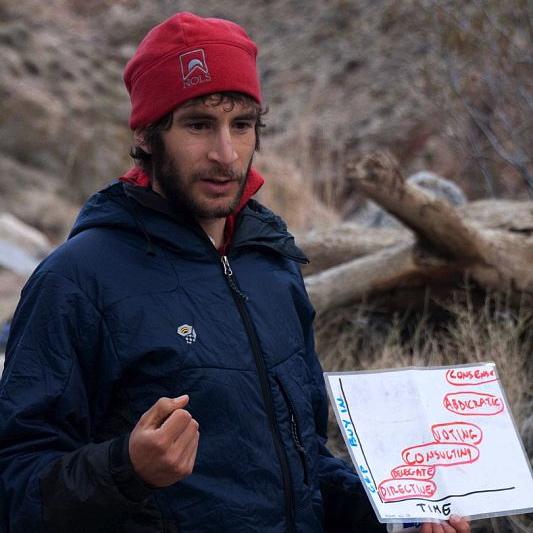PhD
PhD
PhD Environmental Science, Policy, and Management, University of California, Berkeley (2018)
M.S. Conservation Leadership, Colorado State University (2012)
B.S. Ecology, Behavior and Evolution, University of California, San Diego (2008)
The issue, in other words, is no longer whether the public should have a say in technical decisions, but how to promote more meaningful interaction among policy-makers, scientific experts, corporate producers, and the public. -Sheila Jasanoff Technologies of Humility
Big Picture
I like to frame present day environmental crises as a “wreckage of expertise’s past”, where any pressing problem of the environment can be traced back to the decisions of a group of social elite. Expert decision-making wouldn’t be so problematic if the tools employed (scientific reason) were truly impartial as often invoked. But decades of science studies reveal that the criteria of objectivity that form the rationale for expert led decision making is a relative impossibility. It is simply more useful to view science as firmly grounded in society, where elements of power, history, and culture are just as explanatory as a statistical test. Thus, if a crisis of expertise has helped shape present day environmental challenges, why would more expert led decision making be the solution? The alternative, I argue, is a more democratic science, where methods of participatory research distribute the power of the technocratic elite. How to operationalize this ideal in an agricultural setting is the site of my research.
Participatory Mapping in the California Central Coast:
In the California Central Coast, beginning farmers report policy, market, and social barriers to acquiring farmland that matches their goals of small scale organic production. My research will test if a participatory mapping effort by farmers and farmer advocates can expose the trends of land availability in the region as well as the policy environment that constrains access.
Objective 1: Build information technology tools than can be used to further the goals of small holder farmer groups like ALBA and CA Farmlink
Information technology tools can facilitate disparate and opportunistic data collection of farmland availability leading to potential ‘matches’. I plan on using mobile data collection tools like Open Data Kit (Hartung et al., 2010), paper based tools like Local Ground (Van Wart, Tsai, and Parikh 2010), and open source GIS tools like CartoDB and QGIS to aggregate and visualize data from multiple sources and media types. For each of these tools, a focus on process on how data are organized, analyzed and released will be central to design of the data collection effort (Elwood, Goodchild, and Sui 2012). Beyond matching farmers to land, these tools can provide spatial representations of the issue of land access as a powerful tool for argumentation and citizen review of regional agricultural policies.
Objective 2: Analyze trends of farmland availability for small scale growers in the CA Central Coast
Spatial analysis of land available for lease and associated attributes will reveal a snapshot view of trends in tenure, supply vs. demand and perceptions of land quality. To collect this information, I will facilitate a community data collection effort with the help of ALBA producers, their networks, and the CA Farmlink community. The data collection will focus on location, ownership status, perception of quality, and proposed lease arrangement of available farmland. These data will be supported by interviews and participant observation. Access analysis (Ribot and Peluso 2003), will reveal the macro and micro social factors that constrain or facilitate equitable use of a natural resource. As the project continues over time, the ability to assess temporal change in land access will become possible.
-
Calo, Adam. 2016. For farmers, this land is often someone else’s. San Francisco Chronicle.
Calo, Adam, and K. T. De Master. 2016. “After the Incubator: Factors Impeding Land Access Along the Path from Farmworker to Proprietor.” Journal of Agriculture, Food Systems, and Community Development 6 (2): 111–27. doi:10.5304/jafscd.2016.062.018.
Calo, A., 2014. An App for That: Technology as a Solution to Our Broken Food System? Civil Eats.
Calo, A., 2013. Cuba Caught At Agricultural Crossroads. Earth Island Journal.
JUST FOOD Podcast


